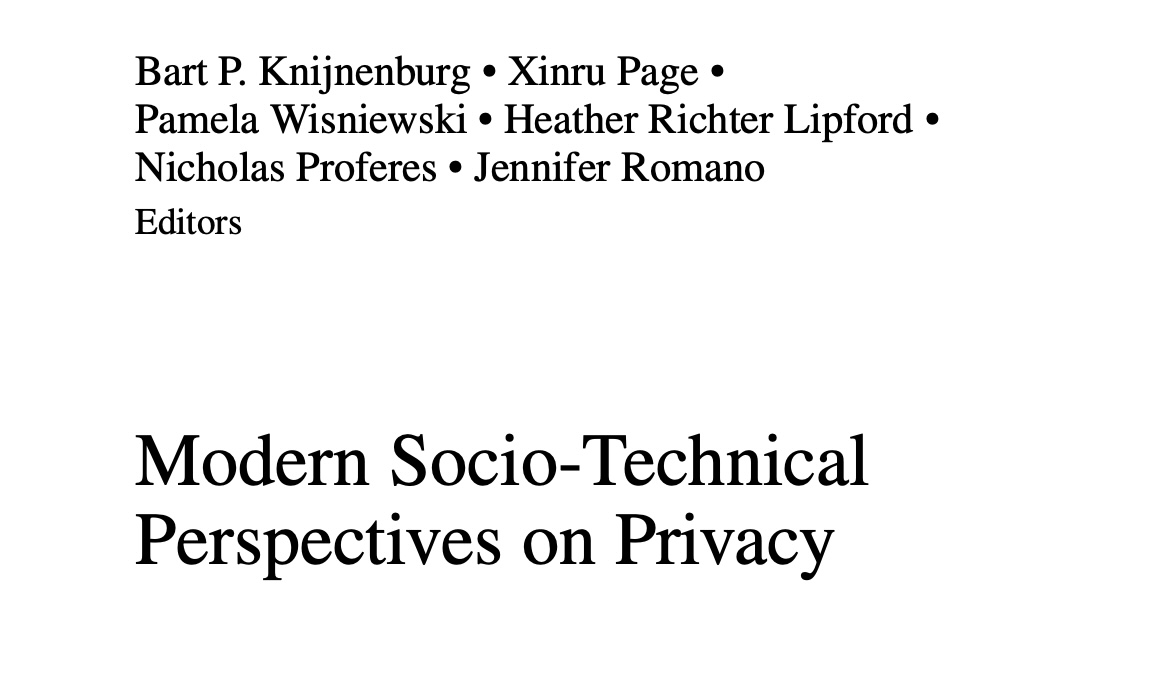[Book] Modern Socio-Technical Perspectives on Privacy

Modern Socio-Technical Perspectives on Privacy
Edited by Bart P. Knijnenburg, Xinru Page, Pamela Wisniewski, Heather Richter Lipford, Nicholas Proferes and Jennifer Romano
Springer, March 2022, 462 pages
This book is open access which means you have free and unlimited access.
It contains a chapter on privacy and behavioral economics by Alessandro Acquisti, Laura Brandimarte and George Loewenstein.
Abstract
This open access book provides researchers and professionals with a foundational understanding of online privacy as well as insight into the socio-technical privacy issues that are most pertinent to modern information systems, covering several modern topics (e.g., privacy in social media, IoT) and underexplored areas (e.g., privacy accessibility, privacy for vulnerable populations, cross-cultural privacy).
The book is structured in four parts, which follow after an introduction to privacy on both a technical and social level: Privacy Theory and Methods covers a range of theoretical lenses through which one can view the concept of privacy. The chapters in this part relate to modern privacy phenomena, thus emphasizing its relevance to our digital, networked lives. Next, Domains covers a number of areas in which privacy concerns and implications are particularly salient, including among others social media, healthcare, smart cities, wearable IT, and trackers. The Audiences section then highlights audiences that have traditionally been ignored when creating privacy-preserving experiences: people from other (non-Western) cultures, people with accessibility needs, adolescents, and people who are underrepresented in terms of their race, class, gender or sexual identity, religion or some combination. Finally, the chapters in Moving Forward outline approaches to privacy that move beyond one-size-fits-all solutions, explore ethical considerations, and describe the regulatory landscape that governs privacy through laws and policies. Perhaps even more so than the other chapters in this book, these chapters are forward-looking by using current personalized, ethical and legal approaches as a starting point for re-conceptualizations of privacy to serve the modern technological landscape.
The book’s primary goal is to inform IT students, researchers, and professionals about both the fundamentals of online privacy and the issues that are most pertinent to modern information systems. Lecturers or teachers can assign (parts of) the book for a “professional issues” course. IT professionals may select chapters covering domains and audiences relevant to their field of work, as well as the Moving Forward chapters that cover ethical and legal aspects. Academics who are interested in studying privacy or privacy-related topics will find a broad introduction in both technical and social aspects.



